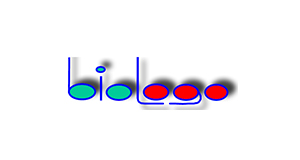Collagen Type IV, mouse
Collagen Type IV, mouse
SKU
BILCO20451-0.1
Packaging Unit
0,1 ml
Manufacturer
BioLogo
Availability:
loading...
Price is loading...
Background: Type IV Collagen is a non-fibrillary network of different alpha-chains: alpha 1(IV) to-alpha 6(IV). It is typically found in basal membranes of different organs (e.g. skin, lens, lung, kidney). Collagens consist of a family of highly specialized glycoproteins of which at least 16 genetically distinct types are known to date. The basal unit of a collagen molecule consists of a triple-helical structure formed by 3 alpha-chains. Predominant amino acids are glycine, proline and hydroxproline. Regularly also lysines and hydroxylysines occur, which are responsible for cross-linkage and glycosylation of the protein chains. Different composition of alpha-chains and different glycosylation contribute to the high variability of collagens in different tissues and organs. Murine collagen type IV 100%; murine collagen type I, II and III <0.1%; human collagen type IV and V <0.1%; murine fibronectin <0.1%; murine laminin <0.1% in RIA at 1:5000 dilution.
Positive Control: Mouse skin or liver
Immunogen: Purified collagen type IV from murine tumour tissue
Purification Method: Affinity purified antibody lyophilized from phosphate buffered solution; no BSA and preservative added!
Concentration: app. 1 mg/ml
References: 1. Heidet L., Borza D.B., Jouin M., Sich M., Mattei M.G., Sado Y., Hudson B.G., Hastie N., Antignac C., Gubler M.C. (2003) A human-mouse chimera of the alpha3 alpha4 alpha 5 (IV) collagen promoter rescues the renal phenotype in Col4a3-/-Alport mice. Am J Pat 2. Guerret S., Govignon E., Hartmann D.J., Ronfard V. (2003) Long term remodeling of a bilayered living human skin equivalent (Apligraf®) grafted onto nude mice: immunolocalization of human cells and characterization of extracellular matrix. Wound Rep. Reg. 3. Mauger A., Emonard H., Hartmann D.J., Foidart J.M., Sengel P. (1987) Immunofluorescent localization of collagen types I, III and IV, fibronectin, laminin, and basement membrane proteoglycan in developing mouse skin. Roux's Arch. Dev. Biol. 196, 295-302.
UniProt: P02463 (CO4A1_MOUSE)
Caution: *These antibodies are intended for in vitro research use only. They must not be used for clinical diagnostics and not for in vivo experiments in humans or animals.
Positive Control: Mouse skin or liver
Immunogen: Purified collagen type IV from murine tumour tissue
Purification Method: Affinity purified antibody lyophilized from phosphate buffered solution; no BSA and preservative added!
Concentration: app. 1 mg/ml
References: 1. Heidet L., Borza D.B., Jouin M., Sich M., Mattei M.G., Sado Y., Hudson B.G., Hastie N., Antignac C., Gubler M.C. (2003) A human-mouse chimera of the alpha3 alpha4 alpha 5 (IV) collagen promoter rescues the renal phenotype in Col4a3-/-Alport mice. Am J Pat 2. Guerret S., Govignon E., Hartmann D.J., Ronfard V. (2003) Long term remodeling of a bilayered living human skin equivalent (Apligraf®) grafted onto nude mice: immunolocalization of human cells and characterization of extracellular matrix. Wound Rep. Reg. 3. Mauger A., Emonard H., Hartmann D.J., Foidart J.M., Sengel P. (1987) Immunofluorescent localization of collagen types I, III and IV, fibronectin, laminin, and basement membrane proteoglycan in developing mouse skin. Roux's Arch. Dev. Biol. 196, 295-302.
UniProt: P02463 (CO4A1_MOUSE)
Caution: *These antibodies are intended for in vitro research use only. They must not be used for clinical diagnostics and not for in vivo experiments in humans or animals.
| SKU | BILCO20451-0.1 |
|---|---|
| Manufacturer | BioLogo |
| Manufacturer SKU | CO20451-0.1 |
| Package Unit | 0,1 ml |
| Quantity Unit | STK |
| Reactivity | Mouse (Murine) |
| Clonality | Polyclonal |
| Application | Immunofluorescence, Immunohistochemistry (paraffin), Western Blotting, ELISA, Radioimmunoassay (RIA) |
| Host | Rabbit |
| Product information (PDF) | Download |
| MSDS (PDF) |
|

 Deutsch
Deutsch







